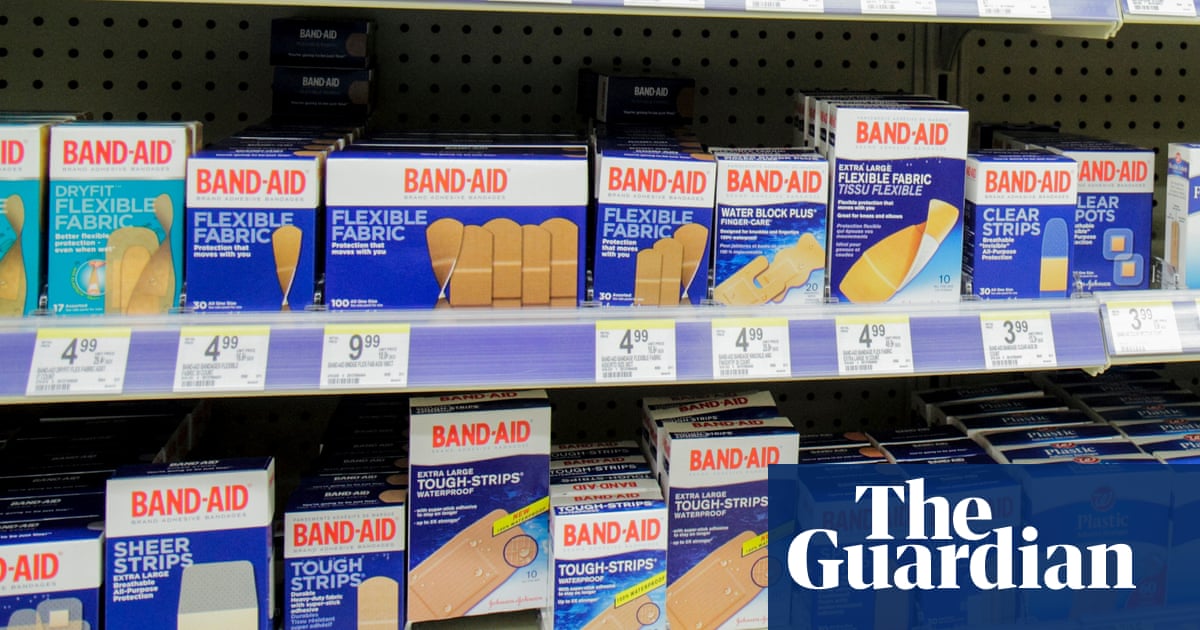Band-Aid, Walmart and CVS among bandage brands containing toxic PFAS | PFAS


Many popular US bandage brands contain alarming levels of toxic PFAS “forever chemicals”, new research suggests, raising questions about the products’ safety.
Testing of 40 types of bandages made by companies such as Band-Aid, Curad, Walmart and CVS found 26 products, or 65%, contain alarming levels of a marker of PFAS. The chemicals were detected in the adhesive flaps and in absorbent pads that press against wounds.
The findings are a “wake-up call” for companies that have the chemicals in their products, said Linda Birnbaum, a former senior Environmental Protection Agency official who analyzed the findings of bandage testing commissioned by the Mamavation blog.
“This stuff can directly enter the body from the bandage and it doesn’t make sense for these companies to use it,” Birnbaum said. Research has found PFAS can be easily absorbed by the skin, which Birnbaum said makes the use of absorbent pads that touch wounds all the more concerning.
PFAS, or per- and polyfluoroalkyl substances, are a class of about 15,000 chemicals often used to make products resistant to water, stains and heat. They are called “forever chemicals” because they do not naturally break down, and are linked to cancer, liver problems, thyroid issues, birth defects, kidney disease, decreased immunity and other serious health problems.
Most companies do not alert consumers to their use of PFAS in products, and rules favorable to the industry rules allow manufacturers to claim the chemicals’ use as a trade secret. However, independent testing has increasingly revealed the wide use of PFAS, especially in personal care products such as dental floss or toilet paper.
The Food and Drug Administration has done little to restrict their use, and no limits exist for levels in personal care products. Band-Aid did not immediately respond to a request for comment.
PFAS are commonly used in adhesives because the chemicals help with moistening and penetrate the substrate to improve the bond, which may explain their presence in bandage flaps.
But PFAS were found at the highest levels in the absorbent pads, possibly because they prevent blood from soaking through the bandage, Birnbaum said, though she stressed it was unclear because companies hide such information. It is possible that some companies are unintentionally adding PFAS because the chemicals are used as processing aids during manufacturing.
About one-third of the brands tested did not contain PFAS, which Birnbaum said highlighted that the chemicals do not need to be used to make bandages effective.
“PFAS are everywhere and unless we stop using them unnecessarily they are just going to continue building up in the environment and our bodies,” she said.
Source link




